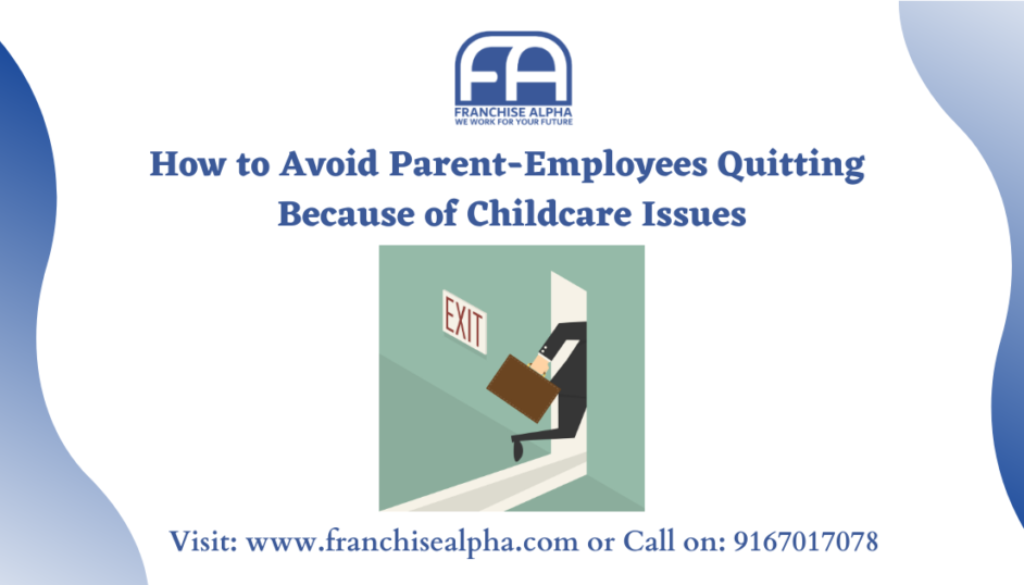How to Avoid Parent-Employees Quitting Because of Childcare Issues
The modern workplace is evolving, and as more parents enter or return to the workforce, it is essential for employers to address the challenges they face regarding childcare. Childcare issues can often lead to parents feeling overwhelmed, stressed, and ultimately deciding to quit their jobs. In this blog post, we will explore How to Avoid-Parent Employee Quitting Because of Childcare Issue
1. Flexible Work Arrangements:
Implementing flexible work arrangements can significantly alleviate childcare challenges for parents. Options such as remote work, flexible hours, or compressed workweeks provide parents with the flexibility they need to manage their childcare responsibilities effectively. By allowing parents to create a schedule that accommodates their family needs, you can foster a better work-life balance and reduce the likelihood of them leaving the workforce.
2. On-Site or Nearby Childcare Facilities:
One way to support working parents is by providing on-site or nearby childcare facilities. Collaborating with local daycare centers or establishing a childcare center within the workplace premises can give parents peace of mind, knowing that their children are nearby and well taken care of. This arrangement not only enhances productivity but also demonstrates a commitment to the well-being of your employees and their families.
3. Subsidized or Flexible Spending Accounts for Childcare:
Financial constraints related to childcare can be a significant factor in parents’ decision to leave their jobs. Offering subsidized childcare programs or flexible spending accounts dedicated to childcare expenses can help alleviate this burden. These initiatives can provide financial support and demonstrate your commitment to assisting parents in balancing their work and family obligations.
4. Employee Assistance Programs (EAPs):
Implementing Employee Assistance Programs that include resources and support for childcare-related issues can be immensely valuable. EAPs can offer access to counseling services, parenting workshops, and referral programs to help parents navigate the challenges they face. By proactively addressing the emotional and practical aspects of childcare, you can create a supportive work environment that retains and attracts parent-employees.
5. Open Communication and Supportive Culture:
Encouraging open communication and fostering a supportive culture is vital for retaining parent-employees. Actively listen to their concerns, provide a safe space for them to share their challenges, and be flexible and understanding when it comes to scheduling and workload adjustments. Regularly assess the needs of parent-employees and implement policies and initiatives that address those needs. By demonstrating empathy and support, you can create a work environment where parents feel valued, respected, and motivated to stay with your organization.
6. Employee Resource Groups (ERGs):
Establishing Employee Resource Groups specifically dedicated to parents or working families can create a sense of community and support. These groups can provide a platform for sharing experiences, offering advice, and advocating for policies that benefit parents in the workplace. ERGs contribute to a supportive network that enhances job satisfaction and reduces the likelihood of parent-employees quitting due to childcare issues.




